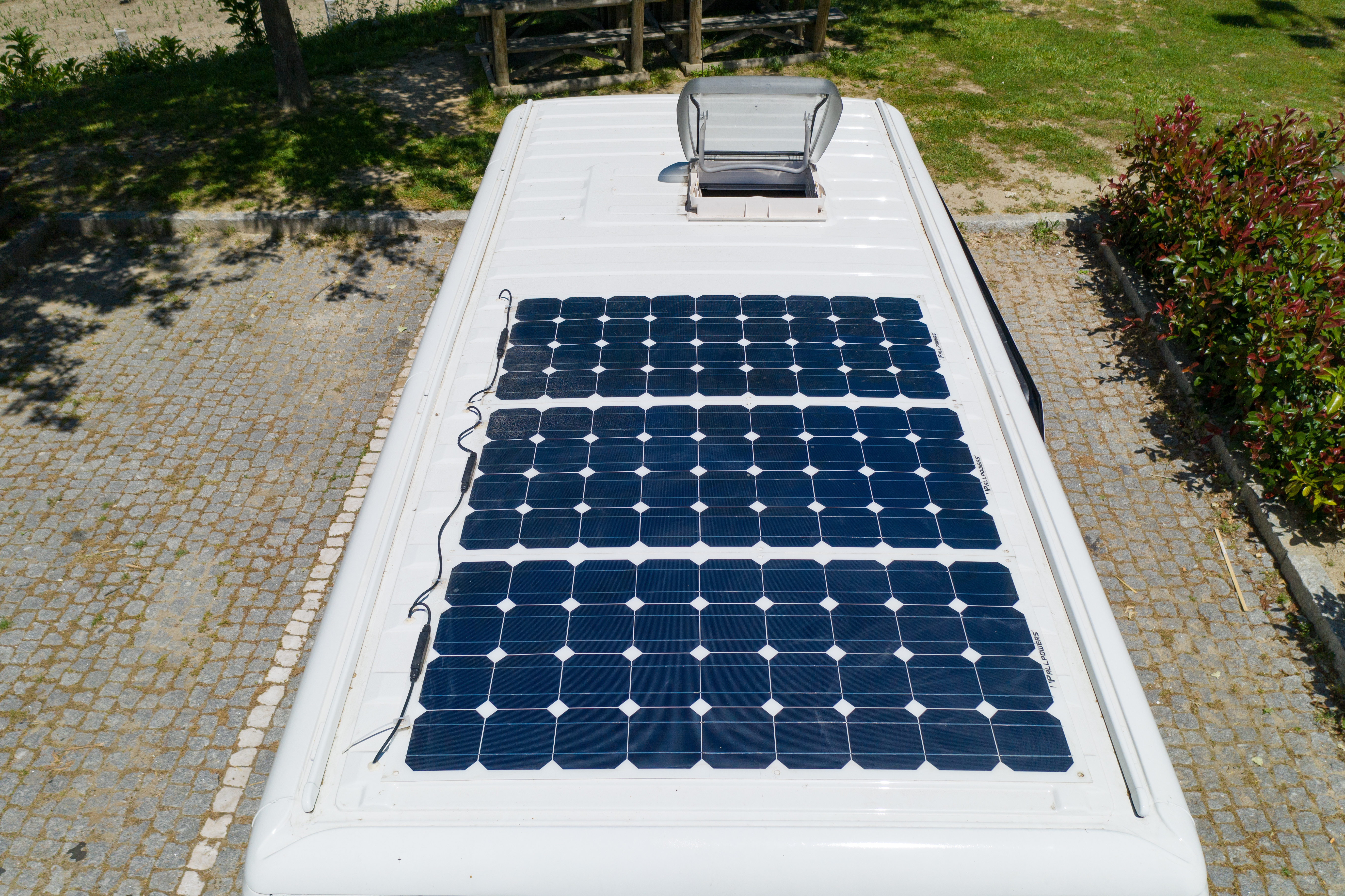Solar power has become a popular and sustainable source of energy in recent years, and one area where it has seen significant adoption is in RVs. More and more RV enthusiasts are embracing solar power as a way to power their travels while reducing their carbon footprint. In this blog post, we’ll explore the basics of solar power for RVs, its benefits, and some key considerations for those looking to install solar panels on their RVs.
What is Solar Power for RVs?
Solar power for RVs is the use of photovoltaic (PV) panels to harness energy from the sun and convert it into electricity. These panels are mounted on the roof of an RV and connected to a charge controller, which regulates the flow of electricity from the panels to the RV’s battery bank. The battery bank then powers the RV’s electrical systems, including lights, appliances, and electronics.

Benefits of Solar Power for RVs
There are many benefits to using solar power for RVs. First and foremost, solar power is a clean and renewable energy source, meaning it has a minimal impact on the environment compared to traditional power sources such as fossil fuels. RVers who care about their carbon footprint can feel good about reducing their reliance on these non-renewable sources of energy.
In addition to being environmentally friendly, solar power for RVs is also very cost-effective in the long run. While the initial cost of installation may be higher than traditional power sources, solar panels have a lifespan of 25-30 years and require little maintenance. This means that over time, solar power will pay for itself in the form of reduced energy bills.
Another advantage of solar power for RVs is its independence from electrical hookups. Traditional RVs rely on hookups at campsites to power their electrical systems, but with solar power, RVers can enjoy off-grid living without sacrificing the comforts of home. This means they can camp in remote locations, avoid crowded campsites, and stay off the beaten path.
Considerations for Solar Power for RVs
While there are many benefits to solar power for RVs, there are also some important considerations to keep in mind when planning to install solar panels on an RV. The first is the size of the solar panel system required to meet the energy needs of the RV. This will depend on the size of the RV, the number of people traveling in it, and the energy consumption of the RV’s electrical systems. A qualified installer can help RVers determine the appropriate size of the system.
The second consideration is the orientation of the solar panels on the roof of the RV. In order to capture the most sunlight, the panels should be oriented towards the south in the northern hemisphere and towards the north in the southern hemisphere. The angle of the panels should also be adjusted based on the RV’s latitude and the time of year. RVers can consult a solar panel installation professional or use a solar calculator to determine the optimal orientation for their location.
Third, RVers should consider the type of battery bank to use in conjunction with their solar panels. The battery bank stores the energy generated by the solar panels for use at a later time. The type of battery bank chosen will depend on the RV’s energy needs and the charging capabilities of the solar panel system. Lithium-ion batteries are a popular choice due to their long lifespan, low maintenance requirements, and ability to charge quickly.
Finally, RVers should consider the type of charge controller to use with their solar panel system. The charge controller regulates the flow of electricity from the panels to the battery bank to prevent overcharging and prolong the life of the battery bank. There are many different types of charge controllers available, ranging from simple PWM (pulse width modulation) controllers to more advanced MPPT (maximum power point tracking) controllers. MPPT controllers are generally more efficient and better able to extract more power from solar panels, but they are also more expensive than PWM controllers. RVers should consult with an expert to determine the appropriate charge controller for their specific system.
In addition to these technical considerations, RVers should also consider the installation process for their solar panel system. While some RVers may have the skills and tools necessary to install the system themselves, most will benefit from hiring a professional installer. A qualified installer can ensure that the system is properly sized and oriented, that the wiring is safe and up to code, and that the system is optimized for maximum efficiency.
Battle Born Batteries has a detailed technical article that answers many questions related to how solar can be used with RV batteries.
Solar Power for RVs May be the Next Big Thing
Solar power for RVs is a great way for RV enthusiasts to reduce their carbon footprint, save money on energy bills, and enjoy off-grid living. However, it is important to consider a number of factors when planning to install solar panels on an RV, including the size of the system, the orientation of the panels, the type of battery bank and charge controller, and the installation process. By carefully considering these factors, RVers can ensure that their solar panel system is properly designed, installed, and maintained for years of trouble-free use.
